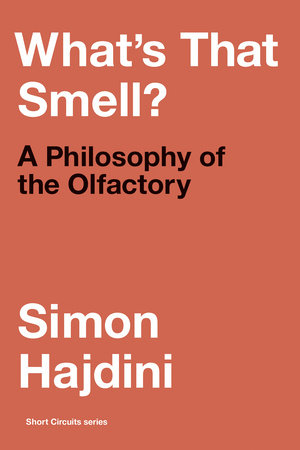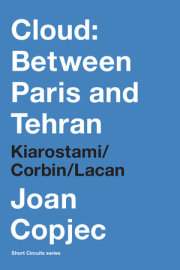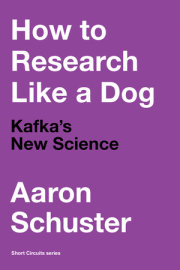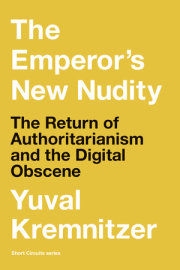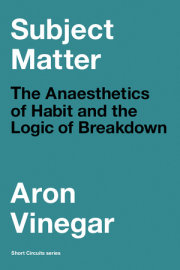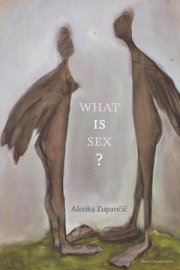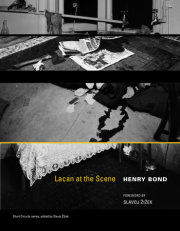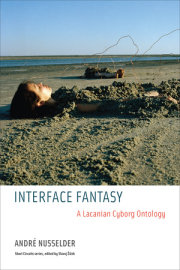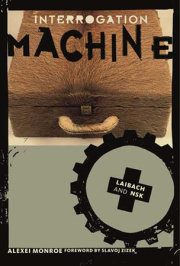How our sense of smell engages with philosophy, psychoanalysis, and political economy—and how it can help enrich our understanding of the nature of truth, language, economy, and sexuality.
Why is it that, in Indo-European languages at least, we have no language to describe smells, leaving us (and famously Juliet) no choice but to call the scent of a rose simply “sweet”? In What's That Smell?, a groundbreaking exploration of the intersection between philosophy, psychoanalysis, and the oft-neglected sense of smell, Simon Hajdini sets out to answer this complex question. Through new readings of traditional and modern philosophical texts, Hajdini places smell at the very center of a philosophical critique of the traditional notion of truth, challenging the idea that smell is the antiphilosophical sense par excellence.
Through fresh engagements with fundamental philosophical issues, original analyses of modern literature and film, and the novel use of scientific research into smell within a humanities context, Hajdini situates problems of olfaction at the very point of inception of cultural life. He proposes that ontology, civilization, and capitalist economy alike can be said to amount to "shit management." And only by following the philosophically most deplorable of the senses, the book argues, can we better understand the central philosophical, psychoanalytical, and political issues of truth, sex, and exploitation.
Why is it that, in Indo-European languages at least, we have no language to describe smells, leaving us (and famously Juliet) no choice but to call the scent of a rose simply “sweet”? In What's That Smell?, a groundbreaking exploration of the intersection between philosophy, psychoanalysis, and the oft-neglected sense of smell, Simon Hajdini sets out to answer this complex question. Through new readings of traditional and modern philosophical texts, Hajdini places smell at the very center of a philosophical critique of the traditional notion of truth, challenging the idea that smell is the antiphilosophical sense par excellence.
Through fresh engagements with fundamental philosophical issues, original analyses of modern literature and film, and the novel use of scientific research into smell within a humanities context, Hajdini situates problems of olfaction at the very point of inception of cultural life. He proposes that ontology, civilization, and capitalist economy alike can be said to amount to "shit management." And only by following the philosophically most deplorable of the senses, the book argues, can we better understand the central philosophical, psychoanalytical, and political issues of truth, sex, and exploitation.
Available for sale exclusive:
• Afghanistan
• Aland Islands
• Albania
• Algeria
• Andorra
• Angola
• Anguilla
• Antarctica
• Antigua/Barbuda
• Argentina
• Armenia
• Aruba
• Australia
• Austria
• Azerbaijan
• Bahamas
• Bahrain
• Bangladesh
• Barbados
• Belarus
• Belgium
• Belize
• Benin
• Bermuda
• Bhutan
• Bolivia
• Bonaire, Saba
• Bosnia Herzeg.
• Botswana
• Bouvet Island
• Brazil
• Brit.Ind.Oc.Ter
• Brit.Virgin Is.
• Brunei
• Bulgaria
• Burkina Faso
• Burundi
• Cambodia
• Cameroon
• Canada
• Cape Verde
• Cayman Islands
• Centr.Afr.Rep.
• Chad
• Chile
• China
• Christmas Islnd
• Cocos Islands
• Colombia
• Comoro Is.
• Congo
• Cook Islands
• Costa Rica
• Croatia
• Cuba
• Curacao
• Cyprus
• Czech Republic
• Dem. Rep. Congo
• Denmark
• Djibouti
• Dominica
• Dominican Rep.
• Ecuador
• Egypt
• El Salvador
• Equatorial Gui.
• Eritrea
• Estonia
• Ethiopia
• Falkland Islnds
• Faroe Islands
• Fiji
• Finland
• France
• Fren.Polynesia
• French Guinea
• Gabon
• Gambia
• Georgia
• Germany
• Ghana
• Gibraltar
• Greece
• Greenland
• Grenada
• Guadeloupe
• Guam
• Guatemala
• Guernsey
• Guinea Republic
• Guinea-Bissau
• Guyana
• Haiti
• Heard/McDon.Isl
• Honduras
• Hong Kong
• Hungary
• Iceland
• India
• Indonesia
• Iran
• Iraq
• Ireland
• Isle of Man
• Israel
• Italy
• Ivory Coast
• Jamaica
• Japan
• Jersey
• Jordan
• Kazakhstan
• Kenya
• Kiribati
• Kuwait
• Kyrgyzstan
• Laos
• Latvia
• Lebanon
• Lesotho
• Liberia
• Libya
• Liechtenstein
• Lithuania
• Luxembourg
• Macau
• Macedonia
• Madagascar
• Malawi
• Malaysia
• Maldives
• Mali
• Malta
• Marshall island
• Martinique
• Mauritania
• Mauritius
• Mayotte
• Mexico
• Micronesia
• Minor Outl.Ins.
• Moldavia
• Monaco
• Mongolia
• Montenegro
• Montserrat
• Morocco
• Mozambique
• Myanmar
• Namibia
• Nauru
• Nepal
• Netherlands
• New Caledonia
• New Zealand
• Nicaragua
• Niger
• Nigeria
• Niue
• Norfolk Island
• North Korea
• North Mariana
• Norway
• Oman
• Pakistan
• Palau
• Palestinian Ter
• Panama
• PapuaNewGuinea
• Paraguay
• Peru
• Philippines
• Pitcairn Islnds
• Poland
• Portugal
• Puerto Rico
• Qatar
• Reunion Island
• Romania
• Russian Fed.
• Rwanda
• S. Sandwich Ins
• Saint Martin
• Samoa,American
• San Marino
• SaoTome Princip
• Saudi Arabia
• Senegal
• Serbia
• Seychelles
• Sierra Leone
• Singapore
• Sint Maarten
• Slovakia
• Slovenia
• Solomon Islands
• Somalia
• South Africa
• South Korea
• South Sudan
• Spain
• Sri Lanka
• St Barthelemy
• St. Helena
• St. Lucia
• St. Vincent
• St.Chr.,Nevis
• St.Pier,Miquel.
• Sth Terr. Franc
• Sudan
• Suriname
• Svalbard
• Swaziland
• Sweden
• Switzerland
• Syria
• Tadschikistan
• Taiwan
• Tanzania
• Thailand
• Timor-Leste
• Togo
• Tokelau Islands
• Tonga
• Trinidad,Tobago
• Tunisia
• Turkey
• Turkmenistan
• Turks&Caicos Is
• Tuvalu
• US Virgin Is.
• USA
• Uganda
• Ukraine
• Unit.Arab Emir.
• United Kingdom
• Uruguay
• Uzbekistan
• Vanuatu
• Vatican City
• Venezuela
• Vietnam
• Wallis,Futuna
• West Saharan
• Western Samoa
• Yemen
• Zambia
• Zimbabwe
Contents
Series Foreword xiii
1 NAMES AT THE TIP OF THE NOSE 1
2 BEING EXCARNATE 33
3 THE EXCREET CHARM OF CULTURE 73
4 PECUNIA—OLET 119
Acknowledgments 147
Notes 149
Bibliography 183
Index 193
Series Foreword xiii
1 NAMES AT THE TIP OF THE NOSE 1
2 BEING EXCARNATE 33
3 THE EXCREET CHARM OF CULTURE 73
4 PECUNIA—OLET 119
Acknowledgments 147
Notes 149
Bibliography 183
Index 193
About
How our sense of smell engages with philosophy, psychoanalysis, and political economy—and how it can help enrich our understanding of the nature of truth, language, economy, and sexuality.
Why is it that, in Indo-European languages at least, we have no language to describe smells, leaving us (and famously Juliet) no choice but to call the scent of a rose simply “sweet”? In What's That Smell?, a groundbreaking exploration of the intersection between philosophy, psychoanalysis, and the oft-neglected sense of smell, Simon Hajdini sets out to answer this complex question. Through new readings of traditional and modern philosophical texts, Hajdini places smell at the very center of a philosophical critique of the traditional notion of truth, challenging the idea that smell is the antiphilosophical sense par excellence.
Through fresh engagements with fundamental philosophical issues, original analyses of modern literature and film, and the novel use of scientific research into smell within a humanities context, Hajdini situates problems of olfaction at the very point of inception of cultural life. He proposes that ontology, civilization, and capitalist economy alike can be said to amount to "shit management." And only by following the philosophically most deplorable of the senses, the book argues, can we better understand the central philosophical, psychoanalytical, and political issues of truth, sex, and exploitation.
Why is it that, in Indo-European languages at least, we have no language to describe smells, leaving us (and famously Juliet) no choice but to call the scent of a rose simply “sweet”? In What's That Smell?, a groundbreaking exploration of the intersection between philosophy, psychoanalysis, and the oft-neglected sense of smell, Simon Hajdini sets out to answer this complex question. Through new readings of traditional and modern philosophical texts, Hajdini places smell at the very center of a philosophical critique of the traditional notion of truth, challenging the idea that smell is the antiphilosophical sense par excellence.
Through fresh engagements with fundamental philosophical issues, original analyses of modern literature and film, and the novel use of scientific research into smell within a humanities context, Hajdini situates problems of olfaction at the very point of inception of cultural life. He proposes that ontology, civilization, and capitalist economy alike can be said to amount to "shit management." And only by following the philosophically most deplorable of the senses, the book argues, can we better understand the central philosophical, psychoanalytical, and political issues of truth, sex, and exploitation.
Author
Rights
Available for sale exclusive:
• Afghanistan
• Aland Islands
• Albania
• Algeria
• Andorra
• Angola
• Anguilla
• Antarctica
• Antigua/Barbuda
• Argentina
• Armenia
• Aruba
• Australia
• Austria
• Azerbaijan
• Bahamas
• Bahrain
• Bangladesh
• Barbados
• Belarus
• Belgium
• Belize
• Benin
• Bermuda
• Bhutan
• Bolivia
• Bonaire, Saba
• Bosnia Herzeg.
• Botswana
• Bouvet Island
• Brazil
• Brit.Ind.Oc.Ter
• Brit.Virgin Is.
• Brunei
• Bulgaria
• Burkina Faso
• Burundi
• Cambodia
• Cameroon
• Canada
• Cape Verde
• Cayman Islands
• Centr.Afr.Rep.
• Chad
• Chile
• China
• Christmas Islnd
• Cocos Islands
• Colombia
• Comoro Is.
• Congo
• Cook Islands
• Costa Rica
• Croatia
• Cuba
• Curacao
• Cyprus
• Czech Republic
• Dem. Rep. Congo
• Denmark
• Djibouti
• Dominica
• Dominican Rep.
• Ecuador
• Egypt
• El Salvador
• Equatorial Gui.
• Eritrea
• Estonia
• Ethiopia
• Falkland Islnds
• Faroe Islands
• Fiji
• Finland
• France
• Fren.Polynesia
• French Guinea
• Gabon
• Gambia
• Georgia
• Germany
• Ghana
• Gibraltar
• Greece
• Greenland
• Grenada
• Guadeloupe
• Guam
• Guatemala
• Guernsey
• Guinea Republic
• Guinea-Bissau
• Guyana
• Haiti
• Heard/McDon.Isl
• Honduras
• Hong Kong
• Hungary
• Iceland
• India
• Indonesia
• Iran
• Iraq
• Ireland
• Isle of Man
• Israel
• Italy
• Ivory Coast
• Jamaica
• Japan
• Jersey
• Jordan
• Kazakhstan
• Kenya
• Kiribati
• Kuwait
• Kyrgyzstan
• Laos
• Latvia
• Lebanon
• Lesotho
• Liberia
• Libya
• Liechtenstein
• Lithuania
• Luxembourg
• Macau
• Macedonia
• Madagascar
• Malawi
• Malaysia
• Maldives
• Mali
• Malta
• Marshall island
• Martinique
• Mauritania
• Mauritius
• Mayotte
• Mexico
• Micronesia
• Minor Outl.Ins.
• Moldavia
• Monaco
• Mongolia
• Montenegro
• Montserrat
• Morocco
• Mozambique
• Myanmar
• Namibia
• Nauru
• Nepal
• Netherlands
• New Caledonia
• New Zealand
• Nicaragua
• Niger
• Nigeria
• Niue
• Norfolk Island
• North Korea
• North Mariana
• Norway
• Oman
• Pakistan
• Palau
• Palestinian Ter
• Panama
• PapuaNewGuinea
• Paraguay
• Peru
• Philippines
• Pitcairn Islnds
• Poland
• Portugal
• Puerto Rico
• Qatar
• Reunion Island
• Romania
• Russian Fed.
• Rwanda
• S. Sandwich Ins
• Saint Martin
• Samoa,American
• San Marino
• SaoTome Princip
• Saudi Arabia
• Senegal
• Serbia
• Seychelles
• Sierra Leone
• Singapore
• Sint Maarten
• Slovakia
• Slovenia
• Solomon Islands
• Somalia
• South Africa
• South Korea
• South Sudan
• Spain
• Sri Lanka
• St Barthelemy
• St. Helena
• St. Lucia
• St. Vincent
• St.Chr.,Nevis
• St.Pier,Miquel.
• Sth Terr. Franc
• Sudan
• Suriname
• Svalbard
• Swaziland
• Sweden
• Switzerland
• Syria
• Tadschikistan
• Taiwan
• Tanzania
• Thailand
• Timor-Leste
• Togo
• Tokelau Islands
• Tonga
• Trinidad,Tobago
• Tunisia
• Turkey
• Turkmenistan
• Turks&Caicos Is
• Tuvalu
• US Virgin Is.
• USA
• Uganda
• Ukraine
• Unit.Arab Emir.
• United Kingdom
• Uruguay
• Uzbekistan
• Vanuatu
• Vatican City
• Venezuela
• Vietnam
• Wallis,Futuna
• West Saharan
• Western Samoa
• Yemen
• Zambia
• Zimbabwe
Table of Contents
Contents
Series Foreword xiii
1 NAMES AT THE TIP OF THE NOSE 1
2 BEING EXCARNATE 33
3 THE EXCREET CHARM OF CULTURE 73
4 PECUNIA—OLET 119
Acknowledgments 147
Notes 149
Bibliography 183
Index 193
Series Foreword xiii
1 NAMES AT THE TIP OF THE NOSE 1
2 BEING EXCARNATE 33
3 THE EXCREET CHARM OF CULTURE 73
4 PECUNIA—OLET 119
Acknowledgments 147
Notes 149
Bibliography 183
Index 193
Back to Top
Notifications






